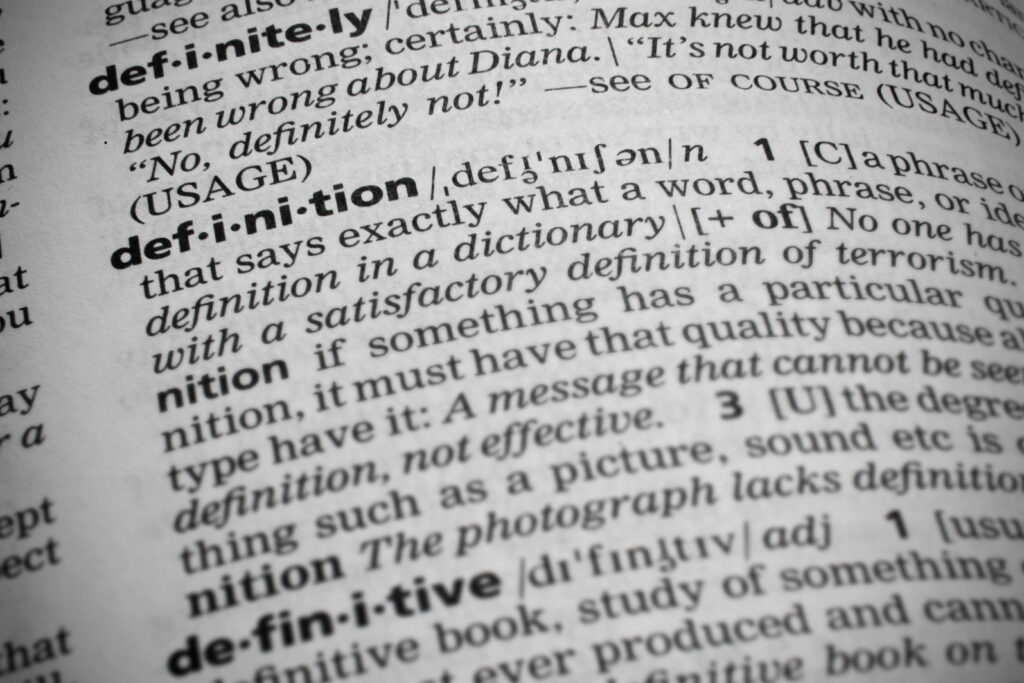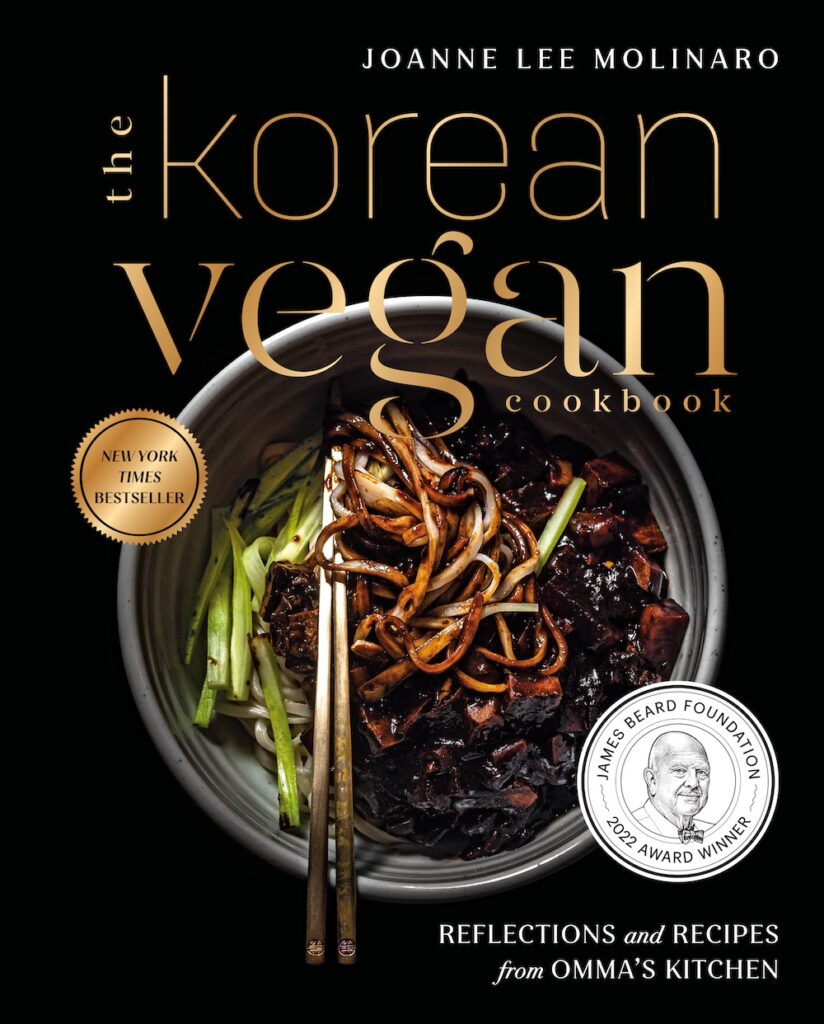The Power of Words.


Sign up Below To Receive the TKV Newsletter in Your Inbox Every Tuesday!

“Raise your words, not your voice. It is rain that grows flowers, not thunder.” -Rumi
Last week, I took a much needed break from podcasting and newsletter writing to do something that you probably want me to work on even more–my book. We are down to the wire, folks. All recipes have been developed and photographed. Most of them have been edited. And about half of them have been finalized for submission. In other words, we are getting real close. Would you like a sneak peak? Of course you would!! And you shall have it!




Now that we have the obligatory update out of the way, onto more important things, like the subject of this week’s newsletter/podcast:
The Power of Words.
My friend Brett (former law firm partner, now federal judge) loves to share this story about one of his clients from Germany. During a deposition, the main witness gave testimony on the company’s business plan. But, because the word for “plan” is “schema” in German, the witness used the word “scheme” instead of plan. Well, the jury went to town on the word “scheme,” inferring everything native English speakers would inject into that word–fraud, conspiracy, malice, etc., resulting in a rather unfavorable verdict for Brett’s client.
While it’s true that actions matter more, words still matter.
Like many of you, the past several days, I’ve been grappling with the meaning of words I’d never taken the time to fully investigate. I’ve seen them thrown around a lot on social media, in the news, and even at dinner parties. But, as my brother learned the hard way when he once used the word “negligee” instead of “negligent,” it’s probably a good idea to know exactly what a word means before you use it. These days, it’s not just about making sure you don’t look like an idiot (that’s a huge part!), it’s also about guarding against giving the wrong impression (as was the case with Brett’s client), or, worse yet, inadvertently hurting people who have occasion to read or listen to your words.
So, for this week’s newsletter, I thought I’d share with you the definition and etymology of words for which I required clarity as it relates to the ongoing turmoil in the Middle East, in alphabetical order. I suspect some or all of these words will be old hat to some of you; but, I tried to include a few factoids for each that might be news to you.
If, how, and when you employ (or deploy) these words is entirely up to you.
Apartheid
(a·part·heid/əˈpärˌtāt,əˈpärˌtīt/), n.
Believe it or not, the word apartheid was actually coined by a member of the white supremacist National Party that came into power in South Africa in the late 1940s. Specifically, Daniel Malan originated the term “apartheid” (from the Dutch word literally translating into a state of “separateness”) to refer to the policies and legislation that segregated white from non-white Afrikaners with the aim of protecting the “white minority.” In other words, the very people who were enacting systemic racism were so self-unaware, they proudly coined their own word for it [insert smh emoji]. Such legislation included the geographical, educational, and marital segregation of white and non-white Afrikaners, as well as the unilateral disenfranchisement of non-white Afrikaners (the National party began to erode the Bantu’s right to vote in 1956 and by 1969, the voting electorate was exclusively white). In 1961, the National Party enacted an Indemnity Act, essentially making it legal to torture and kill non-white Afrikaners.
Some have tied the definition of the term apartheid directly to its origin: “apartheid was a political system in South Africa in which people were divided into racial groups and kept apart by law” (Collins, emphasis added.) This begs the question: now that apartheid has been dismantled in South Africa, has the word become obsolete?
According to the Cornell Law School’s Legal Information Institute (a website I frequented in my practicing lawyer days!), “Apartheid refers to the implementation and maintenance of a system of legalized racial segregation in which one racial group is deprived of political and civil rights. Apartheid is a crime against humanity punishable under the Rome Statute of the International Criminal Court.” (emphasis added.) Indeed, the LII confronts the notion of obsoletion head on by explaining, “Apartheid is not considered an antiquated regime: several human rights organizations highlighted that Apartheid regimes and policies currently live on in certain areas of the world.”
Other dictionaries define the term generally, independent from the politics of South Africa. For example, according to Merriam-Webster, “apartheid” refers to segregation on the basis of race or other categories of identity (e.g., gender, culture). Another way of putting it is the “institutionalized discriminatory system of restricted contact between races.” (Oxford.)
At least one dictionary has incorporated a disparity in political power resulting from (or leading to) the segregation: “a system of keeping groups of people separate and treating them differently, especially when this results in disadvantage for one group.” (Cambridge.)
Genocide
(gen·o·cide/ˈjenəˌsīd/), n.
Combining the Greek word for race or tribe (“genos”) with the Latin word for kill (“cide”), the term genocide was actually created in 1943 by the Jewish-Polish lawyer Raphael Lemkin. Dr. Lemkin petitioned to have genocide recognized as a war crime under international law after the Holocaust, in which every member of his family except his brother was killed.
Viewed as the “crime of crimes” in the wake of WWII, genocide is “the deliberate killing of a large number of people from a particular nation or ethnic group with the aim of destroying that nation or group.” (Oxford.)
The UN provides an even more specific definition in its Convention on the Prevention and Punishment on the Crime of Genocide:
any of the following acts committed with intent to destroy, in whole or in part, a national, ethnical, racial or religious group, as such: killing members of the group; causing serious bodily or mental harm to members of the group; deliberately inflicting on the group conditions of life calculated to bring about its physical destruction in whole or in part; imposing measures intended to prevent births within the group; [and] forcibly transferring children of the group to another group.
What does “intent to destroy” mean? According to international case law, genocidal intent “requires that acts must be committed against members of a group specifically because they belong to that group.” (LII.) Notably, the law does not require a finding that the act was committed solely because of membership in that group. (Id.) Also notable is the fact that one (both an individual or a group) can be guilty of inciting genocide merely by “directly and publicly incit[ing] others to commit genocide” even if no such act of genocide actually occurs as a result.
One thing to keep in mind–genocide refers specifically to the intended eradication of a certain nation or group, not the incidental destruction of that nation or group. In other words, the mass murder of thousands of individuals who are members of a nation or group that occurs incidental to some other objective may not necessarily rise to the level of genocide. Accordingly, some experts have raised concerns about its conflation with other massive international crimes, like slavery:
“Slavery, for example, is called genocide when – whatever it was, and it was an infamy – it was a system to exploit, rather than to exterminate the living.” – Michael Ignatieff, former director of the Carr Centre for Human Rights Policy at Harvard University.
For most people today, the term genocide is inextricably linked to the Holocaust–for good reason. The Holocaust resulted in the death of more than 6 million Jews and it was the stated intent of the Nazi party (i.e., the “Final Solution”) to destroy European Jews. Another recent example of genocide (as defined by the UN Convention) is Rwanda, where an estimated 800,000 Tutsis and moderate Hutus were killed in 1994. Going way back in history, many believe that the first recorded genocide occurred in the mid-140s BCE, when the Romans besieged the city of Carthage and spent the next several days systematically destroying the land and its people (I learned in Latin class that the Romans literally salted the ground before they left).
Terrorism
(ter·ror·ism/ˈterəˌrizəm/), n.
Many folks in the United States will still see the Twin Towers whenever they hear the word “terrorism,” because for most of us–that was our first close encounter with terrorists. The Federal Bureau of Investigations provides the following two-part definition of terrorism:
- International terrorism: Violent, criminal acts committed by individuals and/or groups who are inspired by, or associated with, designated foreign terrorist organizations or nations (state-sponsored).
- Domestic terrorism: Violent, criminal acts committed by individuals and/or groups to further ideological goals stemming from domestic influences, such as those of a political, religious, social, racial, or environmental nature.
I don’t know about you, but I find these definitions to be a little confusing and vague. For starters, what qualifies as a “designated foreign terrorist organization or nations”? Well, at least here in the United States, a “designated foreign terrorist organization” or “FTO” is a foreign organization that is designated by the Secretary of State in accordance with section 219 of the Immigration and Nationality Act (INA) as a result of engaging in “terrorist activity” (these circular definitions are maddening!).
Under the INA, “terrorist activity” is defined as the following:
“[A]ny activity which is unlawful under the laws of the place where it is committed (or which, if committed in the United States, would be unlawful under the laws of the United States or any State) and which involves any of the following:
(I) The highjacking or sabotage of any conveyance (including an aircraft, vessel, or vehicle).
(II) The seizing or detaining, and threatening to kill, injure, or continue to detain, another individual in order to compel a third person (including a governmental organization) to do or abstain from doing any act as an explicit or implicit condition for the release of the individual seized or detained.
(III) A violent attack upon an internationally protected person (as defined in section 1116(b)(4) of title 18, United States Code) or upon the liberty of such a person.
(IV) An assassination.
(V) The use of any–
(a) biological agent, chemical agent, or nuclear weapon or device, or (b) explosive, firearm, or other weapon or dangerous device (other than for mere personal monetary gain), with intent to endanger, directly or indirectly, the safety of one or more individuals or to cause substantial damage to property.
(VI) A threat, attempt, or conspiracy to do any of the foregoing.
In addition to groups, the United States also designates states who have provided support for acts of international terrorism.
In reading the above, one might think that Section (V)(b) (the use of “explosive, firearm, or other weapon . . . with intent to endanger . . . the safety of one or more individuals or to cause substantial damage to property”) would include every country/state that has ever engaged in any war ever. However, acts of war are not, per se, illegal and in order for an act to qualify as terrorism, the act must not only cause harm/damage, it must also be illegal harm/damage.
Keep in mind, the above constitutes the US’s laws/definition vis-a-vis terrorism. Each state (i.e., country) will have its own laws and definitions for terrorism.
While the technical definitions of terrorism are important, for discussion purposes, I’ve found the following dictionary definition to be pretty useful:
“The unlawful use of violence and intimidation, especially against civilians, in the pursuit of political aims.” (Oxford, emphasis added.)
War Crime
(/ˈwôr ˌkrīm/), n.
Anyone who’s watched Braveheart knows that there are certain rules of engagement, even in combat. We also learned from Braveheart that there will always be people who will break those rules. For purposes of our discussion, when it comes to war, the “rules of engagement” were codified in the late 1800s, early 1900s, as part of the Hague Convention. The Geneva Convention (as amended) also adopts certain provisions that outline what qualifies as a war crime. Note, there is no one single document that outlines all war crimes, and, more importantly, not every nation state or group has agreed to either the Hague or Geneva Conventions. Accordingly, there are some states that have rejected the idea of playing by any rules of engagement when it comes to armed conflict.
In 1998, the Rome Statute was adopted in order to create the International Criminal Court (“ICC”). The Rome Statute also attempts to clarify what a war crime actually is, describing it as “grave breaches of the Geneva Conventions . . . .” The Statute then goes onto list that any of the following acts against non-combatants (i.e., civilians) would constitute a war crime:
- Willful killing;
- Torture, including biological experiments;
- Extensive destruction and appropriation of property, not justified by military necessity and carried out unlawfully and wantonly;
- Unlawful deportation or transfer or unlawful confinement;
- Taking of hostages.
In addition to acts already outlined in the Geneva Conventions, the Rome Statute includes the following “serious violations of laws and customs applicable in international armed conflict”:
- Intentionally directing attacks against a civilian population;
- Intentionally directing attacks against civilian objects;
- Intentionally launching an attack while knowing that such attack will cause incidental loss of life or injury to civilians which would be clearly excessive in relation to the concrete and direct overall military advantage anticipated;
- Attacking or bombarding, by whatever means, towns, villages, dwellings, or buildings which are undefended;
- Intentionally directing attacks against buildings dedicated to religion, education, art, science or charitable purposes, hospitals and places where the sick and wounded are collected, provided they are not military objectives;
The biggest caveat to all of this is the following:
Certain countries, including the United States, have not ratified portions of the Geneva Conventions or the Rome Statute. The United States, specifically, has agreed to the Fourth Geneva Convention of 1949, which prohibits murder, torture, and hostages, but has not agreed to bound by the additional war crime prohibitions set forth in the Rome Statute or the ICC’s jurisdiction and authority to try war crimes.
In other words, what constitutes a “war crime” depends, very much, on the country making that determination and even then, can be murky, at best.
Finally, it should be noted that, historically speaking, only individuals–not countries–can be charged with a war crime. This is consistent with the language of the US’s war crimes statute (18 U.S.C. s. 2441), which refers to “the person” committing a war crime.
As I stated at the outset, if/when/how you use these words is up to you. But, if you’re anything like me, you want to make sure you know what you’re talking about before you talk at all, and, my hope is that this information is useful in gaining some clarity on what may feel pretty overwhelming.
Listen to This Week’s Podcast Episode!
Apple | Spotify | Google
This Week’s Recipe Inspo.
Spice Up Your Life.

Spicy Ramen Salt
A spicy, umami packed blend of seasonings that’ll enrich your broths, pop your popcorn, and heat up your pasta sauce!
What I’m…

Watching. I’m sure I’ve recommended this drama in the past, but it remains my all time favorite Korean drama. I recently rewatched my favorite scenes (ep 13) and was reminded of WHY it’s my favorite. The acting is SUPERB, the writing so thoughtful, and the story is totally riveting. If you’ve stopped and started, this is your sign to muscle through until you can’t stop (it’ll happen, I promise). If you haven’t ever watched it, I highly recommend this one!! Watch –>

Reading. I know, I know, I’m very late to the party on this one. But, as you may have seen, I recently had the pleasure of participating on a panel with the one, the only, Kristin Hannah–#1 NYT bestselling author of 20 novels, including The Nightingale. YO. This book has over 97,000 reviews on Goodreads alone (with a rating of 4.6/5.0). It’s sold over 4.5 million copies worldwide. Based in France, the story follows two sisters during World War II as they try to survive the atrocities of war. I’m ready to dive in! Read –>

Using. This is my new favorite “hack” for organizing. I like to keep my drawers tidy, but I found it impossible to do that when I wasn’t able to keep my sports bras, shorts, socks tucked in. Enter these drawer dividers. I know–I’ve used drawer dividers before and THEY NEVER WORKED. They would break or bend or fall apart. But THESE WORK! They’re sturdy, stay exactly where you left them, and, of course, divide your stuff! Shop –>
Next Live Cooking Class – Yubuchobap!

Our next live, interactive cooking class will feature one of my favorite recipes – Yubuchobap!! The class will take place this Sunday, October 29, at 6 pm EST. For members of the Kollective, join the class here and be sure to shop for your ingredients in advance so you can show up ready to cook!
For those who aren’t a member of the Kollective yet, sign up below. You’ll get instant access to the recipe, grocery list, nutritional information, and, obviously, the live cooking class! See you there!
Shine Away!

This past weekend, I was honored with the opportunity to participate on a panel with some incredible women at the Shine Away event, hosted by Hello Sunshine. Moderated by former CNN anchor, Brooke Baldwin, the panel included acclaimed #NYT Bestselling authors, Kristin Hannah (The Nightingale) and Cheryl Strayed (Wild), and we talked about our “Brave Pivots.”
Did you know that Kristin Hannah wrote her first novel while bedridden during pregnancy? And that she started writing it when she was in law school at the encouragement of her mother, because her mother always believed that Kristin was meant to be a writer and not a lawyer? Kristin’s mother would ultimately pass away from breast cancer, but Kristin is often quoted as saying that she’s sure her mother is looking down from heaven telling everyone, “See! I told you she was a writer!” Kristin has gone on to write a whopping 20 novels!
Cheryl’s story is equally incredible. After losing her mother to lung cancer in her early 20s, her despair led her to substance abuse and addiction, until one day, she decided to hike the Appalachian Trail. She documents the trek in her book Wild, which ultimately turned into an Oscar nominated film, starring Reese Witherspoon.
Talk about COURAGE! Check out both The Nightingale and Wild. I definitely intend to!
Parting Thoughts.

Earlier this week, I ran 20 miles along the oceanfront here in SoCal. The “Strand” consists of 22-miles of nearly uninterrupted bike path, starting in Santa Monica and ending in Torrance Beach. Since moving here, the vast majority of my long runs entailed jogging 4-mile loops around a man-made lake in Westlake Village, but at this point in my training, the thought of having to spend four hours and thousands of footsteps along a path that has practically etched itself into the bottoms of my feet… felt about as torturous as it sounds.
I thus woke up at 5 in the morning, hopped into an Uber (I still haven’t mastered driving the canyons, much less in the dark!), hung out in my Uber until the sun finally crept over the horizon, laced up my brand new pair of running shoes (loving my Altras these days), and stepped onto the path. For once, I kept my AirPods tucked into the back pocket of my shorts, partly because I wanted to keep my wits about me (it was still pretty dark and there weren’t a lot of people on the path, yet), but mostly because the waves were ferocious that morning, eating away at the shore with the kind of determination I envied, a reminder of what I’d need to complete the task ahead of me.
Around three miles in, I approached an older woman around my mother’s age listening to something on her phone without earbuds as she ambled along the path. A male voice trumpeted words I couldn’t understand into the air around us. It sounded like a sermon or prayer. I heard “Allah” among a jumble of other words and the woman let out a small wail a few seconds after I passed her. About a mile later, two men jogged easily in front of me while deep in conversation. They looked like the kind of men I used to work with, wardrobes full of semi-wrinkled button down shirts, khakis, loafers, and ratty old t-shirts they’d been wearing for decades when they met their buddies for a weekly run along the Pacific. As I loped past them, I heard one of them say, “Man, I heard on CNN that the airstrikes…” before they were out of earshot.
I’ve repeated, over and over again, “this isn’t about me, this isn’t about me, this isn’t about me” as, like you, I’ve watched, read, and consumed the coverage on the Middle East. Not as a way to distance myself from my rage, sadness, and despair at what I’m seeing; but, to remember that my stake in this matter is infinitesimally small compared to those who’ve had family members taken hostage or loved ones who’ve had their bodies torn apart. My story isn’t the one being targeted, interrogated, and torched and therefore, now isn’t the time to complain about how hard it is to go to sleep at night, how badly I wanted to turn around and hug that woman who was grieving on the path, how grateful I was that those two ordinary Joes were struggling as much as I was to make sense of my own gaping ignorance.
Because this isn’t about me, I haven’t shared with anyone (other than my husband and very close friends) the amount of hostility, negativity, and outright abuse I’ve received in the past two weeks. I haven’t ignored it, but I also haven’t responded to it. Again, I keep telling myself, “nasty messages and comments are a cakewalk compared to those who are afraid for their lives.” And, these people are in obvious pain and terrifically afraid. I say this, but even as I write this, I’m not sure how many more nights I can go to bed with the words “you are a coward” ringing in my ears, all while trying to process images of little children covered in ash.
Why am I now sharing this with you, at the risk of centering myself after telling you how I’ve tried so hard not to do exactly that? Because this struggle continues to elucidate a truth in which I find immense comfort.
Even if only one side has a claim to justice, all who suffer have a claim to compassion.
Don’t let anyone make you feel ashamed for your compassion.
Don’t let anyone bully you into growing numb to cruelty.
Don’t let anyone trick you into thinking that hurting for someone else’s pain is wrong.
Justice will prevail, but, in the wake of that judgment, compassion is what will ensure that we survive it.
Wishing you all the best,
-Joanne





